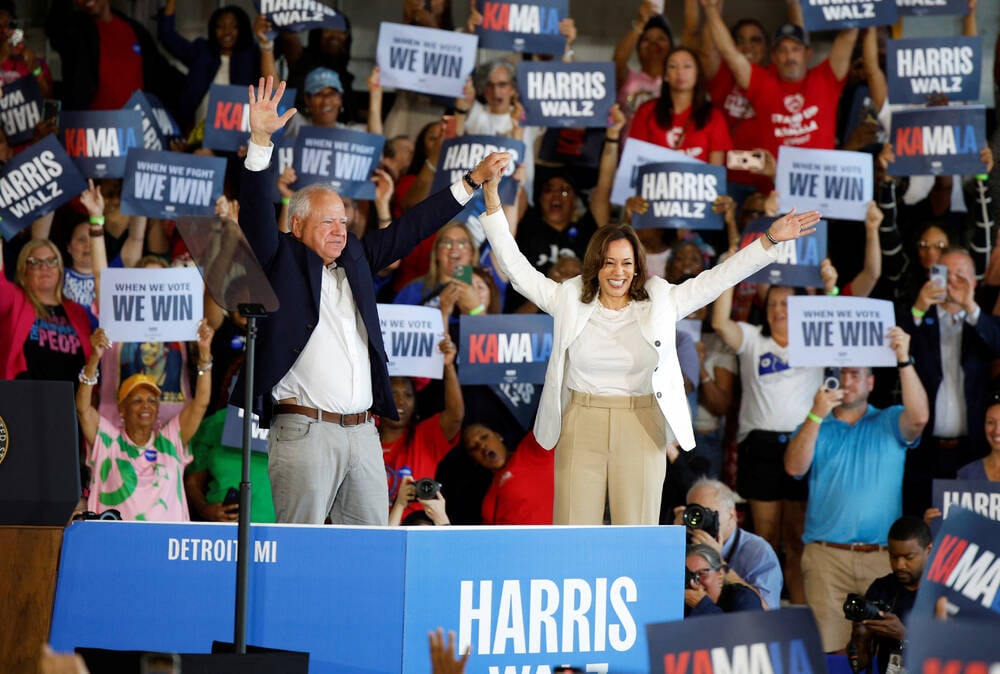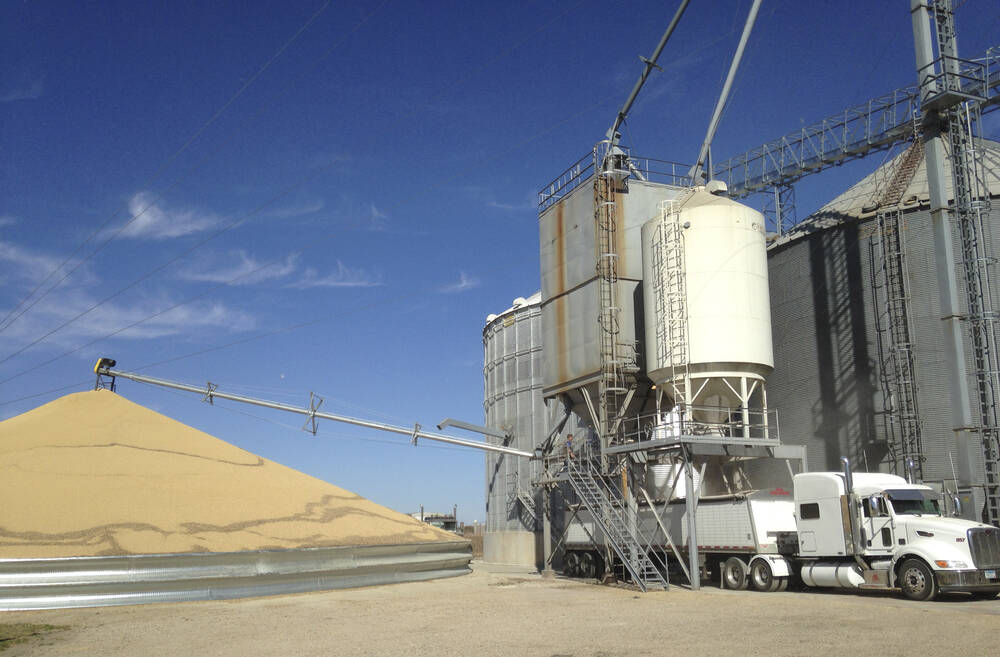U.S. vice-presidential hopeful called pro-ag, pro-trade

Glacier FarmMedia — Canada might have a noted supporter of international trade as a vice-president should Kamala Harris win the U.S. presidential election in November.
Read Also

Ontario fertilizer prices at mercy of outside forces
A railway labour disruption in Canada and the prospect of a massive crop in the U.S. Midwest leave too many questions for clear pronouncements on fertilizer or commodity market directions in Ontario.
Tim Walz, the Minnesota governor who Harris named as her vice-presidential pick, is a pro-trade supporter of agriculture, says Tim Duffault, a board member of the Minnesota Wheat Research and Promotion Council.
“From everything from his time as governor and in the House (of Representatives,) he has been for open trade, fair trade,” said Duffault, who farms near Grand Forks and has been on an international trade trip with Walz.
“Being from an ag state, in the middle of the continent, we have to export as much as we can.”
There are deep trade ties between the upper Midwest and Western Canada, especially between Manitoba, Minnesota and Iowa, but there are also tensions between Canada and Wisconsin over dairy import restrictions.
Minnesota imports many Canadian piglets for its feeder barns and, in turn, exports corn to Manitoba. Agricultural machinery is sold in each direction. Minnesota is also home to Hormel, the famed manufacturer of Spam luncheon meat.
U.S. candidates on trade
Democrats have historically been less friendly toward open trade than Republicans, a trend that has shifted since Donald Trump assumed control of the Republican party.
Republican trade policy under Trump took a more protectionist turn. Trump began his presidential tenure by backing away from the multilateral Pacific Rim trade deal on his first day in office. Initial threats to tear up the North American Free Trade Agreement eventually mellowed to a renegotiated deal.
Canada’s supply management system was a particular irritant for Trump, and a frequent subject of his ire during his presidential term, but once the North American deal was renewed, that situation retreated from the spotlight.
Trump’s current plans for the North America deal, which is up for renewal in two years, are unknown. His public statements have occasionally celebrated it as an example of his winning approach to trade, in which trading partners have made concessions to retain access to the U.S. market.
He has threatened a 10 per cent tariff on imported goods if he is elected, but it is unclear whether Canada and Mexico are in the crosshairs of that promise.
The Harris campaign, in contrast, hasn’t said much about trade. President Joe Biden has been less vocal and combative than Trump about trade during his term, but has also shown little interest in new trade deals.
On strategic technologies and materials, such as semiconductors, he has been an aggressive promoter of “industrial policy,” which focuses government support on specified areas.
Biden has used trade sanctions against Russia for its war against Ukraine. Some “Buy America” provisions in U.S. legislation have upset Canada and other trading partners.
Walz on ag
Walz is close to Minnesota’s farmers and agriculture industry. Duffault went on a Walz-led trade mission to the U.K. and Finland in 2021, in which many Minnesota ag interests took part. Other trips have focused on Latin America and other state trading partners.
“Minnesota has a pretty good track record when it comes to trading with the world,” said Duffault.
Canada’s consulate in Minneapolis covers Canada’s trade interests across the upper Midwest and frequently interacts with Walz. The governor was in Toronto in June on a trade trip, where he met with Canadian business and government officials.
Walz is also familiar with cross-border water issues, defence matters and energy issues. Duluth is an export port on the Great Lakes, connecting Minnesota with Canada’s main eastward-facing export channel.
Depending on how Americans vote, Walz’s trade views might mean nothing after the election. If Harris does become president, there is no guarantee she will base trade policy upon Walz’s views. The Democratic party and the houses of congress will have a lot of influence.
If Walz does influence trade policy, he has shown little proclivity toward heavy tariffs or trade wars of choice.
For his part, Duffault said Walz is up-front and easy to deal with.
“What you see is what you get,” he said. “There’s no fluff in that guy.”
Source: Farmtario.com

